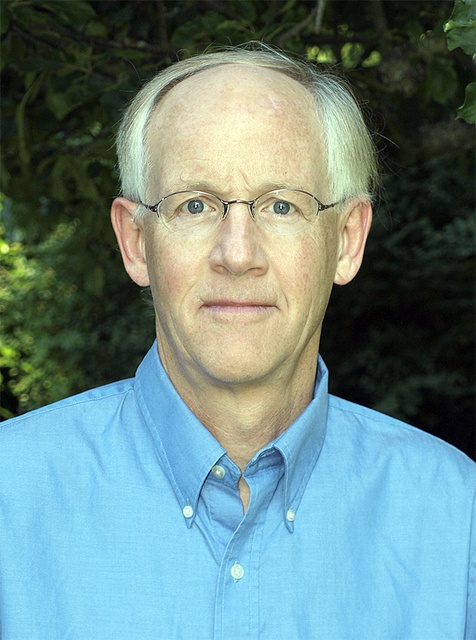Call it luck. Call it synchronicity or even fate, but the stars aligned on the day in 1953 when an elite fighter pilot flew a stolen Soviet MiG-15 jet out of North Korea and defected to the West. The story of his escape, North Korean dictator Kim Il Sung’s subsequent rise to power and the United States’ seldom-discussed role in the Korean War are the focus of best-selling author Blaine Harden’s riveting historical thriller, “The Great Leader and The Fighter Pilot: A True Story About the Birth of Tyranny in North Korea.” Harden will read and discuss his newly-released paperback at 6 p.m. Thursday at Vashon Bookshop.
It seems the stars also aligned on the day in 2012 when the same fighter pilot, No Kum Sok, called Harden at his home in Seattle to see if the author knew of his story. That call set in motion a year-long dialogue, a host of other interviews and a thorough investigation of recently declassified intelligence documents.
“I didn’t know who Kenneth Rowe (No Kum Sok’s American name) was,” Harden said. “I’d been searching for a way to tell about the rise of Kim and his tyranny. Rowe’s call came out of the blue.”
But it was just the hook Harden needed. Adding to his good fortune, just a few months earlier the National Archives and Records Administration had released the files of Sok’s interrogation after he landed on South Korean soil. No one else was interested in the files, so the Archives mailed them to Harden.
The author, who spends time on Vashon, is a longtime reporter for the The New York Times and was The Washington Post’s bureau chief for Nairobi, Warsaw, New York, Seattle and Tokyo. After reading Sok’s interrogation, he went to work researching archives from the Cold War.
“American, Russian and Chinese scholars have been mining archives since the rise of Gorbachev and before Putin cut it off. I mined those for the rise of Sung,” he said. “The words of Sung, Mao and Stalin are all in there.”
Sok flew his fighter-jet out of North Korea on September 21, 1953. Little did he know that on that day, U.S. radar was temporarily disengaged, so his plane was not seen or shot down. He landed at the South Korean U.S. air base 17 minutes later, luckily entering the runway in the wrong direction, thus preventing detection and destruction. The third star that aligned, unbeknownst to the courageous pilot, was a recently U.S. issued bounty of $100,000 (about one million dollars today) for delivery of a Soviet MiG.
Harden said he and Rowe (Sok) talked every other day for a year after their initial week-long interview. Rowe, now 85, has led a very successful life in the United States, but he felt his story had been forgotten.
“He was a famous person in the early days of the Cold War,” Harden said. “His story had disappeared with loss of interest in the Korean War.”
The Korean War lasted only three years, so by standards of war, Harden said, it was brief but took an enormous toll, with 38,000 Americans killed. The war ended in an armistice, an unpopular conclusion after the heroism of World War II, Harden said, so there was a psychological reason for turning it into the forgotten war.
Forgotten for the U.S. maybe, but not for North Korea. Harden’s book reveals how Sung used the narrative of the U.S. carpet-bombing to gain power and how it is kept very much alive today.
“All dictatorships need an enemy,” Harden said. “The bombing has given the Kim family an essential enemy, a fist to shake at the U.S. and justification for endless suppression and military build-up.”
Which is not to say what happened to the North Korean civilians was not heinous. After so many American troops were killed, the U.S. sent in its trained pilots and B-29 bombers. North Korea was not set up to shoot them down, so the bombing was called “leisurely.” They razed North Korea, Harden said, burning every major city, town and village. 85 percent of the structures were destroyed. Curtis LeMay, general of U.S. Air Force, said 2 million people, 20 percent of the population, were killed.
“That is staggering,” Harden said. “I did a projection — if they had done to us what we did to them, then 30 million Americans would have died. That’s the level of destruction the country endured. The bombing was disproportionate and has never been part of our understanding. But the North Koreans have not forgotten.”
That allows for a more sophisticated understanding of why North Korea hates the U.S. It doesn’t come out of nowhere, he said, though none of it justifies the cruel state of the Kim family’s dictatorship.
“We created North and South Korea,” Harden said, “but what perpetuates it is the ‘Great Leader,’ a demigod genius converting fear into his own power and installing his Stalinist regime for over 60 years, the world’s longest-lasting totalitarian state.”


